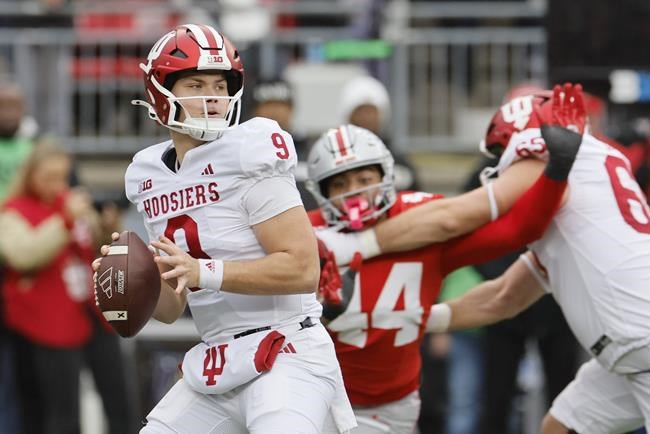Golf
‘We can create a new history’: Indigenous burial mounds on northern Ontario golf course fenced off | CBC News
Most golfers teeing off on the 15th hole of the Huron Pines country club have no idea there are people buried just a few steps away.
This spring, fencing appeared around a wooded area of the course in the northern Ontario town of Blind River.
That’s after Mississauga First Nation told town council that there are about a dozen burial mounds underneath those trees, dating back many centuries.
“As soon as we found out we said ‘We got to do something about this. Right away,'” said Blind River Mayor Sally Hagman.
“You want to do the right thing and I feel what we’re doing today is the right thing.”
Mississauga Chief Brent Niganobe says the town-owned golf course, near where the Mississagi River meets Lake Huron, sits on the site where for centuries his ancestors would live during the summer months, before moving further north for the winter.
He says the cleared land was later developed by settlers and some “shabby” archeological work was done in years past that the First Nation and the University of Toronto are now going through to document “whatever wasn’t destroyed by the golf course.”
“How to make sure that it is kept the way it is and knowledge is shared about what this place is and why it’s important to us,” said Niganobe.
He says the burial ground was “never been forgotten about,” but “views weren’t what they are now” and “we weren’t included like we are now,” mentioning how the Oka Crisis of 1990 was sparked by a golf course being built over burial mounds.
Niganobe says this is all part of a movement in Indigenous communities to “re-grasp all of our traditions” which for Mississauga First Nation includes reclaiming islands in the North Channel, as well as the replanting of wild rice.
“A lot of governments and others talk about reconciliation and don’t necessarily follow up with it, but to actually see something happening where we’re working together doing it, that gives me lots of hope,” he said.
There are some early plans to put up some signs educating golfers about the history of the site, but in the future the two communities could look at making major changes to Huron Pines to better respect the ancestors buried there.
“We can’t change history, but we can create a new history,” said Mayor Hagman.









